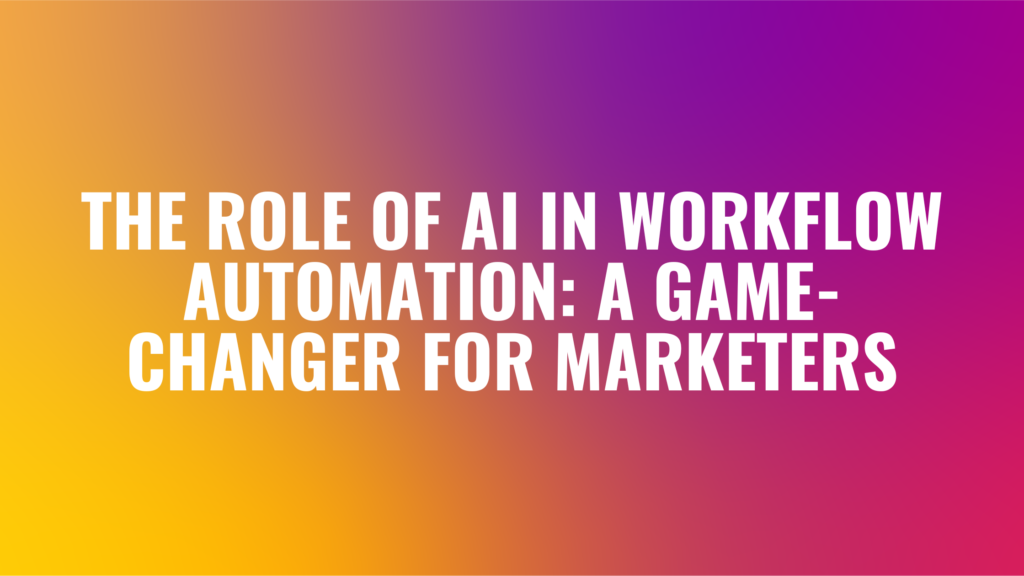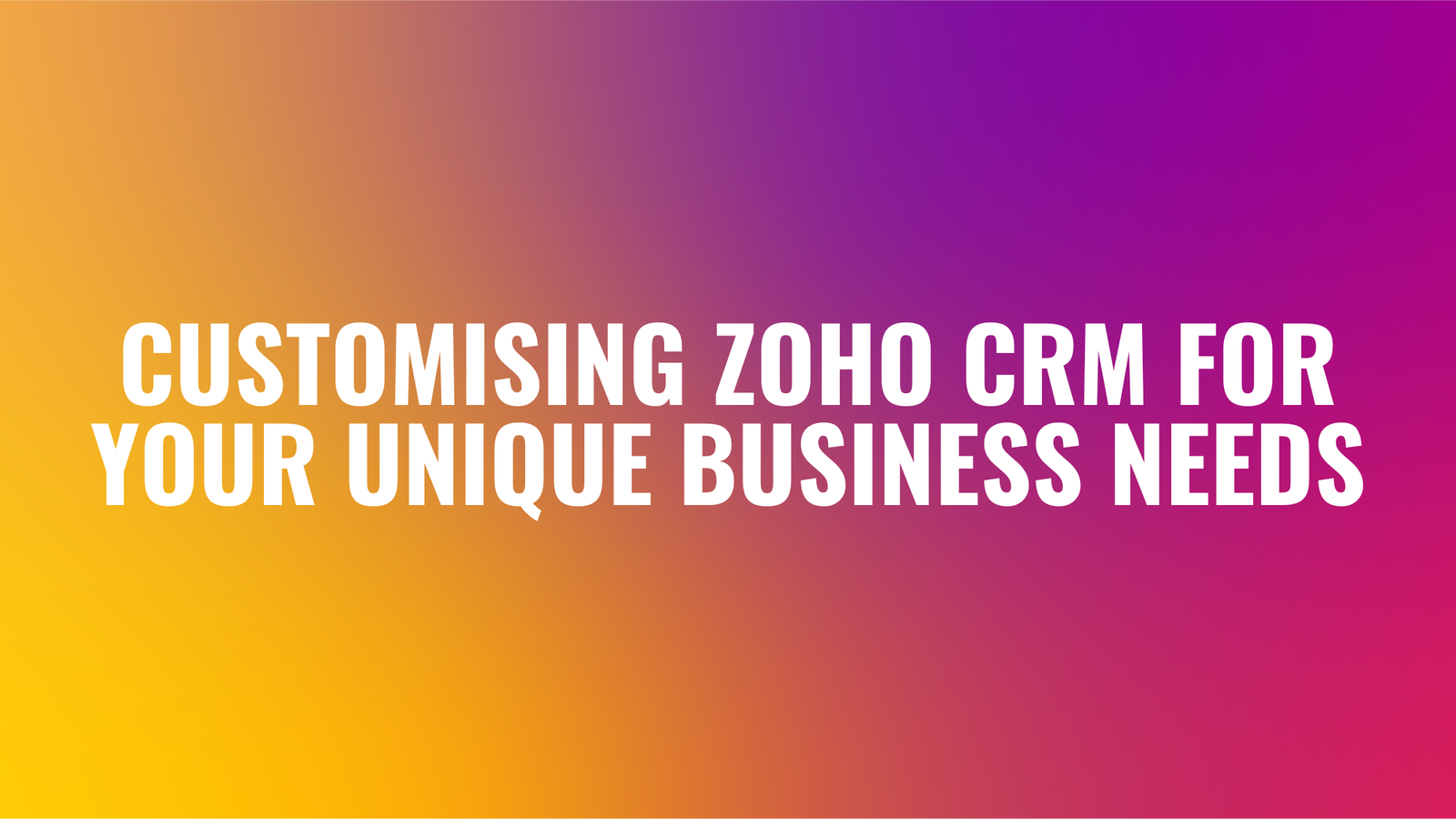As technology continues to evolve, one trend that has emerged as a true game-changer for marketers is the integration of artificial intelligence (AI) in workflow automation. In this comprehensive guide, we’ll explore the profound impact of AI on marketing processes, the benefits it brings to workflow automation, and how businesses can strategically leverage this powerful combination for success. The Evolution of Workflow AutomationTraditionally, workflow automation involved the use of rule-based systems that required explicit instructions for each step in a process. While effective to a certain extent, these systems lacked the adaptability and intelligence needed to handle the complexities of modern marketing. Enter artificial intelligence. AI, with its ability to learn from data and make predictions, has revolutionized workflow automation by introducing a level of sophistication and adaptability that was previously unimaginable. Machine learning algorithms, a subset of AI, can analyze large datasets, identify patterns, and make decisions without being explicitly programmed for each scenario. The Intersection of AI and MarketingThe marriage of AI and marketing is particularly evident in workflow automation. Marketers deal with vast amounts of data, and AI can sift through this data to extract meaningful insights, automate routine tasks, and optimize decision-making processes. Data-Driven Decision Making:AI algorithms can analyze customer behavior, preferences, and engagement patterns to provide marketers with valuable insights. This data-driven approach enables more informed decision-making, allowing marketers to tailor their strategies based on real-time information. Personalization at Scale:One of the challenges in marketing has always been achieving personalized communication at scale. AI addresses this by utilizing customer data to create highly personalized content, recommendations, and offers, resulting in more engaging and relevant interactions. Predictive Analytics:AI-driven predictive analytics can forecast customer behavior, helping marketers anticipate needs and preferences. This proactive approach enables businesses to implement targeted campaigns that resonate with their audience, leading to increased conversion rates. The Impact on Workflow Automation:Workflow automation involves the creation of processes that streamline and automate repetitive tasks. By infusing AI into these workflows, businesses can significantly enhance efficiency, reduce manual labour, and drive better results. Let’s delve into the key areas where AI is transforming workflow automation for marketers: Automated Lead Scoring:AI can analyse customer interactions and behaviours to automatically score leads based on their likelihood to convert. This not only saves time but ensures that sales teams are focusing their efforts on leads with the highest potential. Dynamic Content Generation:AI-powered tools can dynamically generate content based on individual user preferences, ensuring that each customer receives content tailored to their specific interests. This level of personalisation can significantly improve engagement and conversion rates. Chatbot Integration:Chatbots, powered by AI, can be seamlessly integrated into marketing workflows to provide instant customer support, qualify leads, and even assist in the sales process. This not only enhances customer experience but also frees up valuable human resources for more complex tasks. A/B Testing Optimisation:AI algorithms can accelerate and optimise A/B testing processes by quickly identifying patterns and trends in performance data. This allows marketers to iterate and refine their strategies more rapidly, leading to improved campaign effectiveness. Strategic Implementation for MarketersWhile the potential benefits of AI in workflow automation are clear, successful implementation requires a strategic approach. Here are key steps for marketers looking to leverage the power of AI in their workflows: Define Clear Objectives:Clearly outline the objectives you aim to achieve with AI-driven workflow automation. Whether it’s improving lead generation, enhancing personalisation, or optimising campaign performance, having a clear roadmap is crucial. Select the Right AI Tools:Evaluate and choose AI tools that align with your specific needs and integrate seamlessly with your existing CRM and marketing systems. Consider factors such as ease of integration, scalability, and the level of customisation offered. Data Quality and Security:AI relies heavily on data, so ensuring the quality, accuracy, and security of your data is paramount. Implement robust data management practices and adhere to data privacy regulations to build trust with your audience. Training and Skill Development:Equip your team with the necessary skills to understand and work with AI-powered tools. Training programs and workshops can empower your team to harness the full potential of AI in their daily tasks. Monitor and Iterate:Continuous monitoring of AI-driven workflows is essential to identify areas for improvement. Regularly analyse performance metrics, gather feedback from team members, and iterate on your strategies to maximise the impact of AI in your marketing processes. Embracing the synergy between AI and workflow automation is no longer a choice but a strategic imperative. By strategically implementing AI-driven solutions, marketers can unlock new levels of efficiency, personalisation, and effectiveness in their campaigns. The journey towards fully realising the potential of AI in workflow automation may be ongoing, but for those who embark on it with a clear strategy, the rewards are bound to be transformative. As we move forward, it’s evident that the fusion of AI and marketing workflows is not just a trend but a pivotal shift that defines the future of successful digital marketing strategies.




